Each month, HipHopDX will be speaking with industry veterans, who work as A&Rs on Hip Hop releases. To kick the series off, we began with three veterans who have extensive backgrounds in marketing, executive producing, and even some creative duties on projects.
Noah Friedman of Duck Down Music. Known throughout the industry as “NoHa,” Noah is the younger brother of Duck Down’s co-founder Dru Ha. Along with Dru and Buckshot, NoHa works on all Duck Down releases throughout the ’00s, including 2011 projects from Pharoahe Monch, Talib Kweli and Random Axe.
DJ Folk of Young Jeezy’s CTE had a hand in Lil Wayne’s just-released Carter IV album. In addition to Corporate Thugz Entertainment, Folk works with acts such as Birdman, L.E.P. Bogus Boys and others.
On the West Coast, J. Wells has transcended from producer to marketing whiz. Wells has an upcoming compilation The Academy coming later this month, with past credits with Snoop Dogg, Kurupt and Goodie Mob. Having recently signed former G-Unit artist Lil Scrappy to his on Bonzi imprint, Wells makes moves in a variety of Hip Hop circles.
DX created a virtual round-table to get industry commentary from differing perspectives – all active in 2011.
HipHopDX: What do you think of as the state of A&R’ing Hip Hop projects in 2011?
Noah Friedman: [It is] allowing artists freedom to work with who they feel is best for their project both from a production standpoint and with features. While schedules may be hectic from touring or doing promo runs, artists have easier access to mobile studios where even recording on a tour bus is possible. This freedom can give like-minded artists the ability to work together even if time is short.
DJ Folk: It’s extinct to me, ’cause artists are really A&R’ing their own projects [in my eyes]…its a handful of people out there, like Dallas Martin at Warner [Music Group], of course Gee [Roberson] and [Kymabo “Hip-Hop” Joshua” of Hip-Hop Since 1978, Matt McNeal over at [Universal Music Group] Publishing /Surf Club, Josh Berkman at Cash Money, Jean Nelson and Chris Jones at Geffen, and then myself. It’s a lost art, so to speak
J. Wells: In this day and age, artists need to have a bulk of the creative process done before a deal will be considered. With the advancement of technology, it doesn’t cost much for someone to have a studio at there finger tips. Once I get a project in my system, I may have to fine tune some things here and there and focus on finding a single [or two], but for the most part I’m finding more and more projects where the artist has completed a great deal of the heavy lifting already.
DX: What trends do you see labels, A&Rs and top managers really looking for?
DJ Folk: Everyone wants to go with what’s hot, whether it’s quality or not. If you get a single hot enough then they, the labels, want a piece of it, and they get thirsty for money.
J. Wells: For a long time, everyone wanted a piece of the Jerk movement. It seemed for a while there was a new group releasing a new single with that sound every other month; I couldn’t keep up. The record game has always been like that to some extent. Even in the ’90s if one artist blew up, there was always gonna be a major [label] that signs something similar, you know they follow the money. Right now many artist new and old are either making good Pop, Dance music or making attempts at it. It’s obvious the world wants to party and dance right now because all the A&R’s and managers I run across will constantly ask for up-tempo records. I’m not mad at it though.
Noah Friedman: It’s cliche, but I think everyone is looking for the next young star to breathe fresh life into either a label roster or manager’s portfolio. Some of the newer names may not be selling the same amount of album units, but their touring heavy and shows are consistently sold out. It’s proving that a record with little radio and video-play can still show up in the Top 20 single charts at iTunes. Some of these artists may be selling 20,000 to 30,000 albums but their digital singles are eclipsing 150,000 units.
DX: What was the last/upcoming project you worked on, what was the challenge?
J. Wells: I co-executive produced a new compilation album called The Academy, which features Jadakiss, Styles P, Royce Da 5’9, Kurupt, Sean Price, Keith Murray, Redman, Method Man, Raekwon and over 50 emcees on one album. Setting up the video for the already released single “Samarydas”  featuring Raekwon and Kurupt was very challenging, because I would reach out to Raekwon and he would be on tour and Kurupt is touring heavily with Snoop [Dogg]. When Kurupt was free, Raekwon was not and vice versa. So we had to shoot everyone in separate locations and edit them together with the use of green screen and after-effects. I wanted to get those two legends together for a shoot but it just proved to be impossible. The video is almost done and will be releasing soon so stay tuned.
featuring Raekwon and Kurupt was very challenging, because I would reach out to Raekwon and he would be on tour and Kurupt is touring heavily with Snoop [Dogg]. When Kurupt was free, Raekwon was not and vice versa. So we had to shoot everyone in separate locations and edit them together with the use of green screen and after-effects. I wanted to get those two legends together for a shoot but it just proved to be impossible. The video is almost done and will be releasing soon so stay tuned.
Noah Friedman: I’m currently working with David Dallas. Newer artist to the [United] States, but has a strong following in his hometown of Auckland, New Zealand [including the] #1 selling album at iTunes NZ, selling out 800 person venues, brand ambassador for G-Shock New Zealand, etc). The challenge, like with anything new, is getting people’s attention. With some of the emerging artists he wants to collaborate with, a lot of times the manager or contact person may be running around on the road with the artist making the communication tough.
DJ Folk: The last projects i did A&R-wise were Jigg’s High Grade, USDA‘s CTE Or Nothing  , and L.E.P. Bogus Boys‘ Don’t Feed Da Killaz
, and L.E.P. Bogus Boys‘ Don’t Feed Da Killaz  . Then i did some production coordination work on Lil Wayne‘s [Tha] Carter IV and did some work on Birdman‘s Bigger Than Life album.
. Then i did some production coordination work on Lil Wayne‘s [Tha] Carter IV and did some work on Birdman‘s Bigger Than Life album.
DX: How are the commercial successes of Kendrick Lamar, Mac Miller and Yelawolf influencing A&R’ing?
DJ Folk: I’m glad they’re sucessful because it bucks the latest trends of signing whoever has a hot record or buzz without real quality music. When I found [Big] K.R.I.T. in 2005 , everybody was like, “He doesn’t have a look or a single.” [I felt like I heard] every excuse ever, but the talent and quality is there.
J. Wells: I think it just proves that you have to keep your ear to the streets because as an A&R the talent is out there, but its up to you too find it. Kendrick Lamar started his own movement that was organic from where he came from and that caught Dr. Dre’s attention. Kendrick is talented, I’ve known him for a minute now, as I produced a song for him and Jay Rock in the past. That’s what it’s about these days—no more babysitting. A&R’s are looking for the hottest artist in the streets, artists who are shooting they own videos, artists with huge social online followers, artists making hot mixtapes, and artists with success on local radio – you have to conquer your own backyard before you can conquer anyone else’s. Major labels are being very conservative these days, so as an A&R we look at numbers, if something is putting up numbers then we gravitate to it. Numbers never lie. Yelawolf, Kendrick and Mac Miller each started they own grass-roots organic movement that caught the attention of an exec.
Noah Friedman: [They are teaching the industry to] figure out a way to tour. It’s one of the hardest things to do and one of the first questions we get from our own artists, but there has to be consistency to a touring schedule. At times egos may have to be checked and artists need to take chances on door deals, especially when starting out or trying to re-spark a career. If a show isn’t packed, don’t be discouraged. Play to the hardcore fans there and give them a reason to go back and tell more people to check for your material. Don’t take too long a time off from re-visiting that market. If you’re good and have value, word of mouth will spread. Also, align yourself with a strong team. The artists mentioned in this question come from a family that understood and was recently successful in breaking new talent.
DX: What’s the best decision, specifically-making, you think you made in recent times?
Noah Friedman: I’m proud of Duck Down’s decision to launch 3D (Duck Down Distribution). Our first partnership was with Talib Kweli for his Gutter Rainbows digital album. You have to understand that your brand name may not be best suited for all projects, but the behind-the-scenes team and minds should be well equipped to work any project. Kweli gave us the opportunity and in roughly one month we helped finalize his album with hiring band members for re-structuring some of his instrumentals, locking in features such as Sean Price, and getting him MTV premiere-looks for his videos. There is nothing better than working with dedicated artists & then seeing the project become successful and the effort paying off.
DJ Folk: The best decision [was] probably working with some of the producers I work with now…before their first placements. [This includes] The Olympicks, DJ Cas, Megaman, Boi-1da [and others] – and then working with [Young] Jeezy on and off the last five years.
J. Wells: I chose to learn the business side of this game. I made the sacrifice to become a young executive and entrepreneur. I started as a producer and worked with Keyshia Cole, Snoop, Goodie Mob to name a few, but that wasn’t enough for me. I saw the execs making more money then the creative folks so I wanted to grow in the game and be able to wear different hats, so in 2005, I started my own company Bonzi Records. It has just shown me how to obtain longevity. From growing my business skills, I have took on jobs such as marketing consulting, tour managing, A&R’ing, and distribution. Its the music business and its really 80% business and 20% music; so if your business is right you will last.
DX: With abstract acts coming forward, are Gangsta Rappers or hardcore Hip Hop emcees having a tougher time getting deals lately?
Noah Friedman: The delivery and flow may be changing, but I don’t think it means the end of hardcore Rap. The messaging for certain artists is hardcore but they’re just not rapping angry or aggressive. For veterans I think it’s tougher because it may not be as believable that someone in their mid-thirties or even forties is truly living a gangster lifestyle…and although they may be, does a younger generation buy into it or even care? We see the buzz growing on Odd Future (hardcore even if you want to call it abstractly hardcore) and up-and-comers like ASAP Rocky from Harlem who can definitely get categorized as hardcore.
J. Wells: Gangsta music will always have a place in Hip Hop if it’s real and if the records are good it will sell. Hip Hop is just becoming more and more diverse. There is a time and season for everything. Fans don’t want to hear gangsta rappers make Jerk songs. My advice, do the music that you do naturally and people will love it for what it is. You can’t abandon your old fans for new ones. There is a huge independent lane in the industry now, so artists will see more and more flexibility to create a company that will cater to the fans; there is still a huge population out there that wants to hear that G shit. I’m still bumping [Dr. Dre’s] 2001 and I want more of it.
DJ Folk: Nah, ’cause with society the way it is… there will always be a place for both [styles]. [There] has to be a balance…it’s just that most people get tired of whatever is prevalent and want something fresh.
DX: Is there as much room for artists to change up a style and sound right now?
J. Wells: I think there is always room for that if the records are hot – people will listen to change. Good music will always sell no matter how different it is from the norm.
DJ Folk: Sonically, artists have to keep pushing the envelope [and] say shit [in] a way it ain’t been said…and don’t get caught in one type of sound. The world is bigger than your city or hood, [so] make music that will touch a soul in China or the U.K.
Noah Friedman: Change is progression so there is nothing wrong with it. The key is doing so in a way that doesn’t alienate a fan-base that may exist. Find a happy medium to test your comfort boundaries but also stay true to what’s helped you build a platform to stand on. If an artist goes into the studio to try and make a certain type of record, chances are they won’t get what they were looking for. It has to be natural.
DX: Concept albums are in vogue again. Does that make A&R’ing more fun?
Noah Friedman: It helps to keep messaging consistent but can also lead to things feeling forced. The closest experience I’ve had to being involved in a project like this was KRS-One & Buckshot‘s Survival Skills. We had some strong features in place from Mary J. Blige, K’naan, Immortal Technique, Slug of Atmosphere, Melanie Fiona, Talib Kweli, Bounty Killer, Sean Price and Pharoahe Monch, but when you try to get feature artists to be on the same page as the primary artist’s vision it can become a daunting task.
DJ Folk: I think concept albums push the line of creativity somewhat…’cause I know how artists are, they get bored a lot and want to experiment. I think we will see more; [Jay-Z and Kanye West’s] Watch The Throne was one … it was a heavily Euro-sounding influenced album; they made stadium music. They basically made a Dubstep-influenced album, but when the artist is energized it makes these projects easier as long as, you know, the direction once you got a few records in the can.
J. Wells: I think it makes it fun and less stressful because if the artist has direction then you have less of a headache. The best thing to have is an artist that has direction and knows what they want. I just recently signed Lil Scrappy to my label Bonzi/Fontana (UMGD) in a joint venture deal with his company S-Line/G’s Up. When I met with Scrappy along with some Universal execs we all were just impressed that he had an entire album completed with one producer. He didn’t need anything but marketing. This is what its all about now. Hip Hop needs to go back to one producer and one artist format (there’s not enough of it) as it generates a more cohesive sound—instead of everyone hiring the same producers and making albums that are all over the map. Look out for Scrappy’s new album The Grustle early next year.
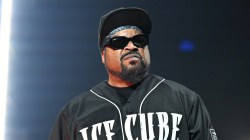
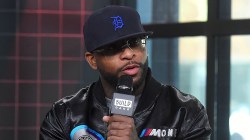
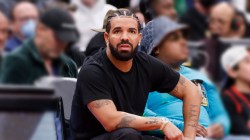


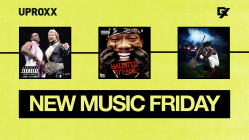
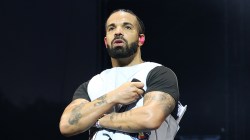
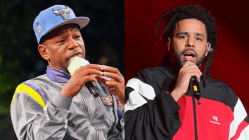
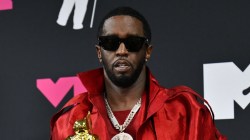
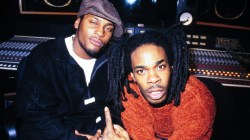
But good music doesn’t sell though. Big Boi’s album didn’t sell good but was dope as hell!
GOOD music will sell if it gets the SAME promotion the bullshit music does!
First you have to find good music in rap.
Singing rappers automatically mean’s bad music because they can’t sing. None of them.
See Kanye, Big Sean, Drake, Wiz.
I laugh real hard when I hear people say Drake makes good music when he raps or whines over the same beat over and over again.
Yet most of this generation considers that good music. It’s not even good rap let alone good music.
Yet that’s the biggest thing going now. I would like to go back to the days where if you sung on your album that would be the least played track and you would get mocked for it endlessly.
oh come on now Pharoahe monch and mos can sing and rap don’t pigeonhole All rappers.
Labels want as many black male feminine rappers they can find.
Or Male hairdressers as I call them.
http://www.reverbnation.com/alldaywitit LOVE MY MUSIC. GOT TO GET MY MOVIE DONE SEE IF YOU LIKE IT. GHETTOCABLE.WEBS.COM FREE PROMO US IT ADD ADD SONGS AND VIDEOS
LOVE MY MOVIE CLIP http://ghettocable.webs.com/apps/cafepress_shop/